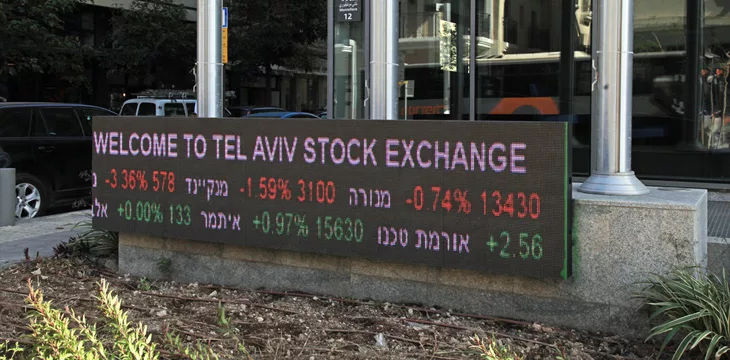Blockchain application in the financial sphere: advantages and opportunities

Outdated delivery processes for financial services must be changed. For example, data entry into multiple systems and manual data aggregation are common problems in the financial and economic sphere. In addition, such a centralized system is increasingly vulnerable to cyber attacks since all information is gathered in one place.
Inefficient technologies, paper documents and bureaucratic mechanisms must be replaced by digital innovations based on the principles of collaboration, trust, independent values, elimination of intermediaries and complete security. Blockchain technology fulfills all these principles today.
What is Blockchain and how does it work?
Blockchain is a distributed database technology based on an ever-growing chain of records. At the beginning of its existence, the blockchain was widely used in cryptocurrencies. This made it possible to carry out chain transactions with a high degree of protection against forgery and theft of data, as well as a high speed of transaction processing.
In general, this technology can be represented as an ever-growing sequence of blocks distributed among the participants. A time stamp (hash sum) is added to each block, forming a strictly defined chain. If you try to change such a sequence, the system will reject such a chain because the sequence will be determined to be incorrect.
Blockchain technology uses several safeguards to prevent the correct hash sum from being read. The most important thing is proof of work and ownership. It follows that the participants in transactions cannot deceive each other, and the data is transparent since a database is uniform.
The main benefits of blockchain technology for the financial sector
The benefits of blockchain technology include the following:
- There is no server in the chain. Each participant is a server that supports the operation of the entire blockchain;
- Information about transactions is publicly available. This data cannot be changed;
- Theoretical infinity. Theoretically, the chain can be supplemented with records ad infinitum;
- Only legitimate transactions are recorded. It is impossible to change the hash;
- Blockchain can be used not only in the financial sector, but also in other spheres of life (jurisprudence, real estate transactions, insurance, etc.).
Use QIT Software’s unique solutions and enjoy all the benefits of blockchain technology. It will definitely help you take your business to a whole new level.
Popular blockchain applications in the financial sphere

Thanks to its universal technology, blockchain can be used in finance for many purposes. Here is a list of possible use cases:
- International payments. Using blockchain to make payments between different financial institutions and customers can significantly reduce costs for banks and remove the need for a complex information structure. In addition, it can increase the security level and speed of domestic and international payments;
- Securities. The traditional way of trading securities requires quite complicated accounting procedures involving parties such as brokers, stock exchanges, custodian banks, central securities depositories, etc. Transferring securities to digital form will increase their liquidity. It will also help to more effectively comply with the implementation of the legislation, flexibly transfer and take into account the ownership of such assets;
- Accounting. Every modern firm runs different accounting operations. Data reconciliation requires time and significant human resources. Blockchain technology can easily solve this challenge. All transaction data will be recorded in real time in a single register, so compliance with important legal norms will be checked automatically. This can greatly improve the work efficiency of organizations;
- Revise. Blockchain provides up-to-date and reliable accounts between counterparties, making the audit process more convenient and transparent and reducing the time it takes. Auditors do not need to review a large number of daily transactions, so they can focus more on contentious and complex issues;
- Insurance. Insurance companies can implement blockchain technology to instantly share customer data. If a person insured by different companies changes their address, it is sufficient to send updated information to one of the insurance companies. All data will then be transferred to other organisations.
- Electronic commerce. Blockchain guarantees simple and secure payments on the Internet. One of the missions assigned to the blockchain is to change the commercial ecosystem of the Internet. Free micro-markets should replace large marketplaces that make money from mediation. The introduction of BBEP platforms (blockchain-based e-commerce platforms) will enable seller and buyer to interact directly;
- Logistics. Blockchain offers process and contract management using algorithmic processes. Every step in the transportation and delivery of goods can be tracked using blockchain technologies. Such logistics applications will make it possible to understand where the order is at a given moment, under what conditions it is stored, and who is responsible for the result. All this makes it possible to bring logistics to a qualitatively new level, reduce costs, eliminate the corruption component and cancel structures that act as a reliable party to the agreement.
In addition to the applications described above, blockchain is widely used today for smart asset and contract management, crowdfunding, government control, etc. It makes the financial sector more flexible, transparent and secure.
Conclusion
Blockchain is an efficient and safe tool for solving a wide range of financial tasks. This technology has the potential to change the way we manage supply chains, transactions and asset exchanges, accounting and auditing.
In addition, blockchain can be useful in public administration and public control of public bodies. Thus, the undoubted advantage of blockchain is its universality – the technology is suitable for managing any project based on a distributed database.
























